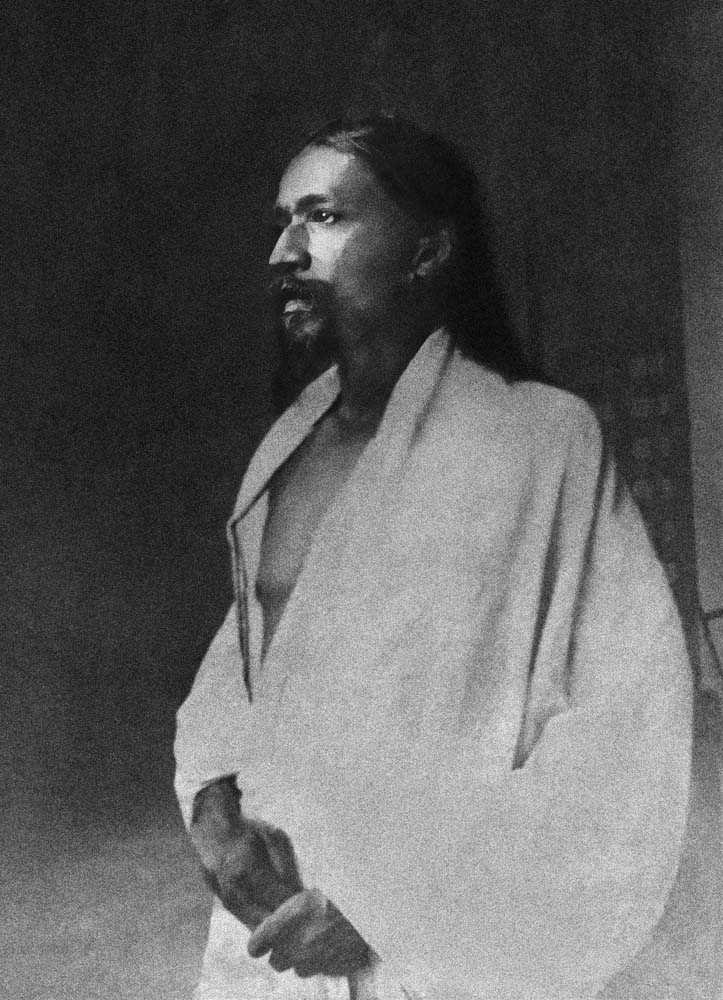On August 15, 1947, India attained independence from the British Raj. Seventy-five years earlier on the same day Sri Aurobindo, a great yogi and a spiritual reformist, was born, who was one of the pioneers of the Indian independence movement.
Aurobindo’s father Dr Krishnadhan Bose was a professional doctor in England. Krishnadhan was so influenced by the western culture that he wanted to rear and educate his child according to British standards. So, Aurobindo’s entire upbringing, including his education, took place in England. When he was five years old, he was sent to Loreto School in Darjeeling. He was seven years old when he was sent to England. He spent the next 14 years studying at a school in Manchester, and later attended St. Paul’s College, Cambridge.
Later, in 1892, he received the top marks for the main paper of the Indian Civil Service examinations. By then he had already become well acquainted with the freedom fighters of the Indian independence movement and an intense nationalistic fervor and patriotism had awakened in him.
He refused to become the administrator of the English establishment by deliberately skipping horse-riding competition, which was the final part of the test. Instead, he became an active member of ‘Lotus and Sword’, the revolutionary, semi-underground organization based in India. It was during this time that he met Maharaja Gaekwad of Baroda who urged him to return back to India for good and work for the government of Baroda, while continuing to help the Indian independence movement.
In 1893, Sri Aurobindo received his degree and returned back to India. For the next nine years, he served the Baroda government. During this time he also got acquainted with Indian culture, yoga and the freedom movement.
While he was still stationed in Baroda, Aurobindo married 14-year-old Mrinalini Devi. At this time, he was also active in organizing an armed rebellion against British rule. As his political aspiration deepened, his interest in meditation and spirituality matured, too. Due to the ‘sanskars’ of his past lives, in spite of his hectic schedule, he started managing time for inner exploration, and his search for a Guru led him to Bishnubhaskar Lele of Maharashtra.
Lele could see great potential in Aurobindo. He urged him to spend some time with him and meditate together. It was very difficult for Aurobindo to arrange free time but he managed three days out of his busy schedule. He meditated in seclusion with Lele for three days and had deep experiences of meditation. He experienced the state of thoughtless consciousness and realized that he was a witness—a state that often takes years for a normal meditator to achieve.
Lele was very much impressed by the progress and advised Aurobindo to leave his worldly affairs and devote full-time to meditation. Aurobindo felt that leaving India under British rule to go and meditate would be escaping the need of the moment and didn’t agree to do so. However, he continued meditating regularly. He started to get instructions and inspiration from within during his meditation. He shared his experiences with Lele, who was very happy to hear them.
Lele told him, “If you have full faith in your inner voice then you don’t need any advice from outside.”
In 1906, Aurobindo left Baroda for Kolkata, which was a fertile ground for the revolutionaries. He had accepted the post of principal at the Bengal National College but spent most of his time encouraging the revolutionaries, editing pamphlets and newspapers and supporting organizations. In 1908, the family of Kingsford, the British Governor of the area, was assassinated in a bomb blast. Aurobindo was one of the prime suspects. He was arrested and put in Aligpur Jail.
Initially, Aurobindo was disheartened but when he started to meditate in the jail, his inner voice said, “Just wait and watch.”
Since his political and professional career had hindered him from exploring the deeper aspects of yoga and meditation, he found out that his arrest had been a blessing in disguise. He spent his days studying the Gita and the Upanishads and meditating.
In Alipur Jail, among other things, Aurobindo experienced levitation of his body. He also heard instructions from Swami Vivekananda continuously for 15 days although it had already been six years since Swami Vivekananda had left his body. While meditating in the jail, a lot of his dormant siddhis also awakened.
There was a Kadamba tree right in front of his cell. Sri Aurobindo had the darshan of Lord Krishna, who, too, advised him to leave all other work and devote full-time to his meditation. Aurobindo was still worried about the Independence Movement.
Krishna assured him, “You just meditate in solitude; I will take the responsibility of India’s freedom. The Independence of India will come as a gift on your birthday.”

